The Bulletin Interviews: Raphael Robiatti
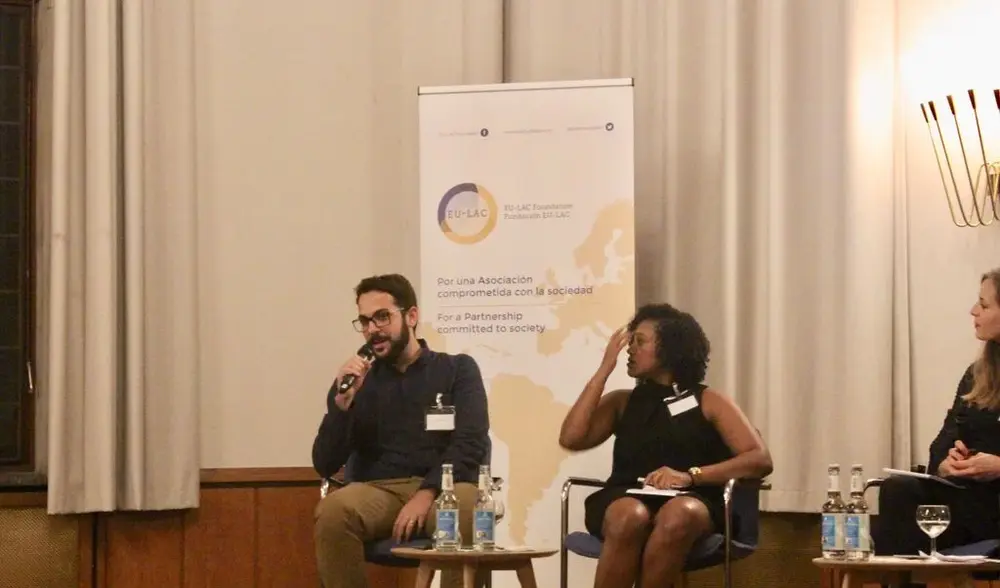
Raphael Robiatti is a 2015 graduate of the Willy Brandt School, currently working as a Senior Consultant at Deloitte in Frankfurt. His previous experience is mostly in the public sector in Germany and Brazil, and in Multilateral Organizations. He is particularly interested in Development Banks and digital transformation.
In this interview, he shares details about his job and his insights on how the Brandt School influenced his career, as well as some inspirational advice for current students.
Thanks so much for joining us! Please tell us a little bit about yourself and your background.
I studied international relations in Sao Paulo, Brazil. I was working there with the International Trade and with public-private partnerships (PPPs). I moved to Germany in 2013 to do my master’s in public policy. After that, I worked at the Brandt School as a project coordinator. Later on, I worked at the State Development Bank in Thuringia for two years. Currently, I work at Deloitte as a public sector consultant.
Your career has been very diverse and public sector oriented. What drove you to want to pursue policy initially?
After my bachelor's, most of my work was oriented toward public institutions, international relations and governance. Back in 2013, Brazil was not offering me growing options for my career, so I looked for training programs in Germany and the Brandt School offered a good program.
When looking back at your time at the Brandt School were there any key opportunities or moments that you think were pivotal to your success?
I was a very active student, always involved with the student government and as a teaching assistant. It allowed me to get to know how to develop projects, understand the constraints and how to get things done in a more practical way. Being in a relatively small organization facilitated this understanding.
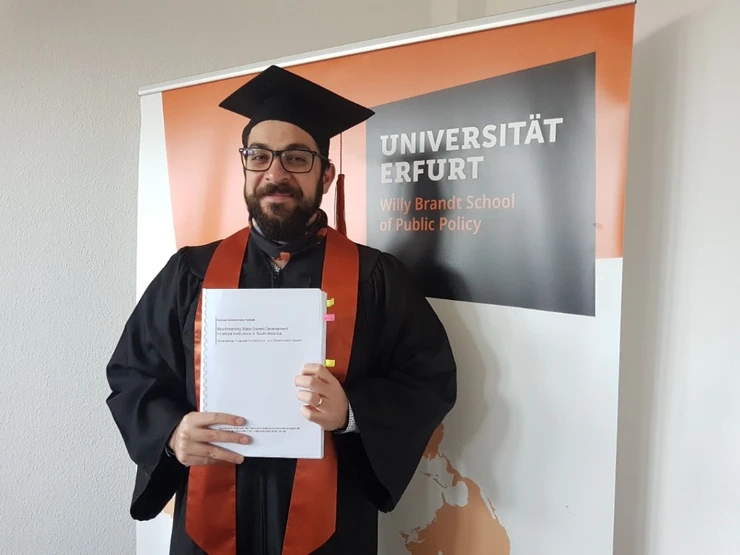
Would you change anything if you had your time at the Brandt School again?
I personally focused almost exclusively on how the program would influence my professional development so most of my time I was taking classes that were very praxis oriented. In retrospect, I think I could have explored other theoretical classes that were “outside” of my core interests. I also received an offer to do an internship at a World Bank agency in Vienna but since it was unpaid in a different (and expensive) city, I opted for a paid internship elsewhere. Sometimes I wonder about the different path I would be on had I chosen Vienna.
What are some key pieces of advice you would give to current students of policy?
I would say networking is very important. Studying at the Brandt School offers a lot of room for growth. We as students are privileged and I would advise finding alternatives to change things that are not working, and not focusing just on complaining.
Would you have any tips regarding networking at Brandt School? What would they be?
A key aspect would be to go to different events, even if you are not really interested in the subject. You can always be surprised and you can meet people that you may not met otherwise.
After the master’s, you did a Ph.D. in public economics. Why did you choose this area? How was the journey?
My PhD is in Public Economics with a specialization in public finance. Before starting it, I looked into development banks and considered various PhD options before beginning to work with a professor in Staatswissenschaften (Political Science) who helped me with the focus on Economics. I don’t think you need a PhD to be taken seriously but if one would like to be involved in academia, a PhD becomes a must. Also, in my experience as a foreigner, a PhD can help to make one’s profile more competitive and boost chances in the job-market.
You have worked mainly in Brazil and Germany. What would you say is different in the work culture in these two regions?
People work longer hours in Brazil than in Germany, and Germany definitely has a bigger focus on work-life balance. Here I have more privacy and independence in my free time. In Brazil, even larger companies have comparatively fewer resources than companies in Germany.
You also wrote a book about “National Development Banks in South America”. Is this the product of your PhD thesis? What was the most fun and challenging part about writing it?
I finished my PhD with summa cum laude and the professor offered to publish a modified version of the thesis as a book. During your PhD you are pretty free to work at your own pace, and it was nice to connect with so many different people. I did a comparative approach so I was able to go to conferences, network, and have a glimpse of research and academic work in other countries.
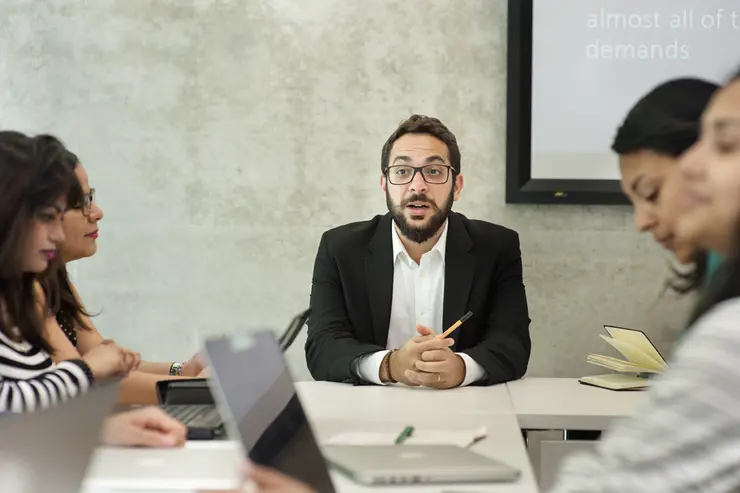
You are now a consultant at Deloitte. What does this type of role entail?
I am doing Public Sector Consulting at Deloitte. One thing I am currently working on is a digital transformation project which involves AI and the Cloud to improve processes in a public sector organization. This focus on tech is somewhat new to me as my background is mostly in policy and auditing. Deloitte has a matrix hierarchical system that allows me to do work on very different projects. Most of what I do is looking at the synergies between EU funds and digital transformation projects.
How did you get your start in consultancy? It is known as a sector that is highly competitive. How did you shift your field from public policy to consultancy?
I am still doing public finance related work, just on the consulting side now. I did work for a consultancy in Brazil before doing my master’s. After getting my master’s degree I worked in the public sector in Germany for a while, but I wanted to shift. At the Thüringer Aufbaubank, where I worked for a while, we outsourced a lot of projects to consultancies. It is nice to be on the other side of this now and help people working in the public sector. Consultancies need people who understand public policy and public administration structures.
Consultancy also has the reputation of having a bad working culture which needs a better work/life balance. What would you say to people who think that?
Working in the public sector in Germany is fairly relaxed. While I am now working for a consultancy, our clients are still in the public sector and don’t expect late-hours, weekend or holiday work. It is somewhat busier than working in the public sector but not at all too bad.
What are your long-term career goals?
I am happy in my role at Deloitte, but would still consider going back to Brazil someday, as was this was my initial goal. I would be happy to work in a position where I can help to improve the public sector in Brazil. I want to use the policy knowledge and the experience I have gained here to help revert the brain drain process that I have been a part of. Down the line I could see myself working on international development in Brazil and the LAC region.
Thank you very much for the interview!
About the Author
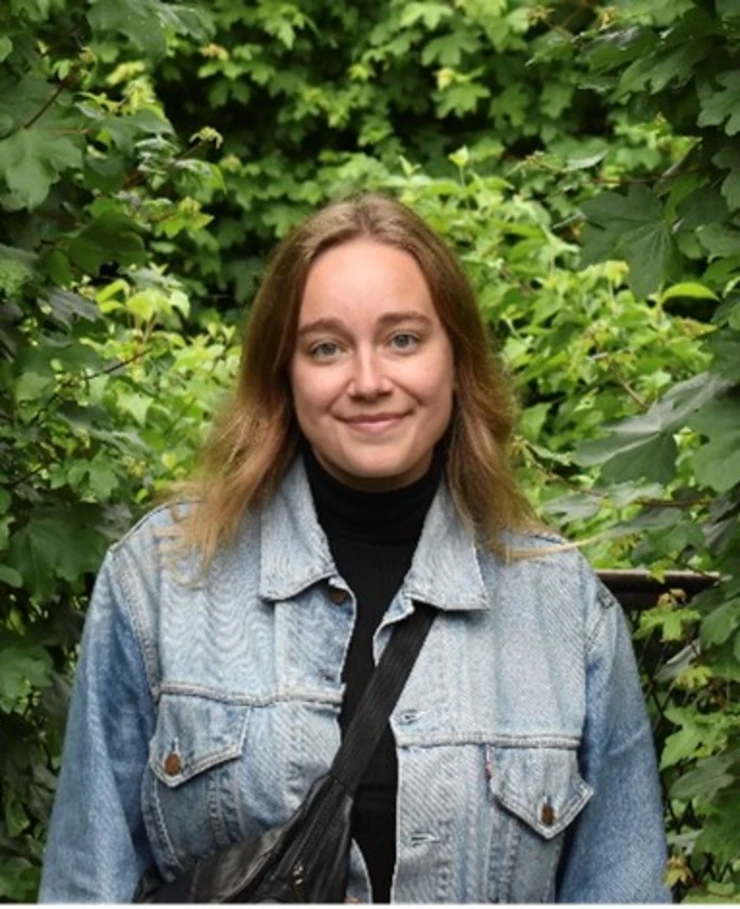
Lara Schüth is a first year MPP student at the Willy Brandt School. She has a Bachelor’s Degree in History and Sociology from the University of Minnesota — Twin Cities and worked in the non-profit sector in the United States for several years. Her interests include youth civic participation, political education, and environmental justice.
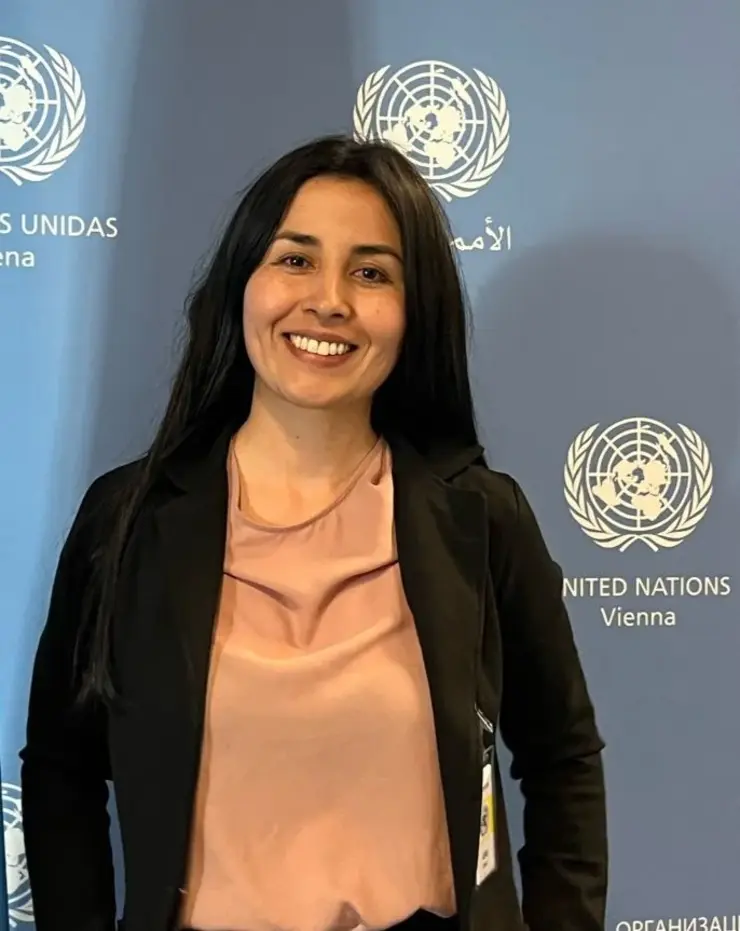
Nancy Apraez is a first-year student at the Willy Brandt School. She has a Bachelor’s Degree in Law and has worked in the legislative branch in Colombia. She is interested in Conflict Studies and Development.
~ The views represented in this blog post do not necessarily represent those of the Brandt School. ~